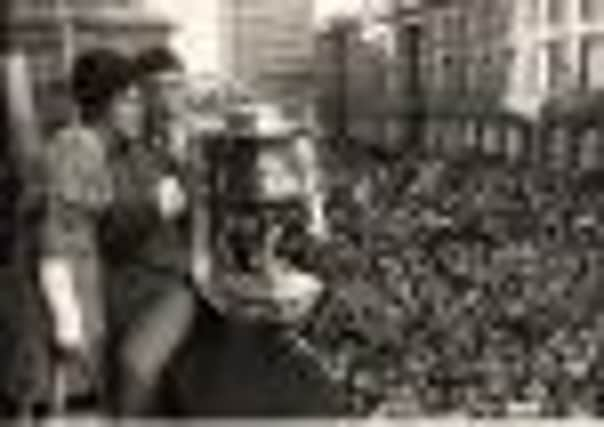Sporting Bygones: Golden days of the Sixties when Wakefield ruled the roost before loyal Trinity fans rallied round in support of forlorn finalist Fox


Throngs of jubilant Wakefield Trinity fans descended on the city hall to welcome their champion team home in 1968 after a 17-10 win over Hull KR at Headingley Stadium.
They had retained the trophy, having lifted it for the first time the previous year courtesy of a victory over St Helens, and it was the culmination of nearly a decade’s hard work.
Advertisement
Hide AdAdvertisement
Hide AdTrinity had also come so close to completing league and cup doubles in both 1960 and 1962, rejoicing in memorable Challenge Cup final successes only to finish runners-up each time in the Championship.
But here, they were indisputably the finest team in the land, having edged past Rovers – happy memories for club’s supporters who are now fearing something altogether different.
Trinity fans have resigned themselves to being the unfortunate side who will miss out tomorrow when the Rugby Football League announces who has won a Super League licence for 2012-2014.
It seems certain they will be demoted to the Championship and, while some see it as a time to regroup, rebuild and start afresh, others view the prospect as the beginning of the end and find it hard to imagine ever returning to those golden days of the ’60s.
Advertisement
Hide AdAdvertisement
Hide AdIt was certainly Trinity’s finest era when they emerged as Yorkshire’s leading team.
Between 1960 and 1968 they finished among the league’s top four in all but one season, won the Championship twice and the Challenge Cup three times, showing great consistency.
With the likes of peerless centre Neil Fox, the robust Derek Turner, Ian Brooke, Harold Poynton, Gary Cooper and Gerry Round, they had an array of talent at their disposal.
That also included Don Fox, Neil’s elder brother and pictured above with his wife Mary and the Championship trophy, at their ’68 civic reception.
Advertisement
Hide AdAdvertisement
Hide AdHowever, this would be a bitter-sweet time for the former Featherstone scrum-half as, less than a week after this photograph was taken, he would be experiencing a completely different range of emotions.
Fox had contributed a single goal in the victory over Hull KR but his failure to kick one crucial effort in the Challenge Cup final the following Saturday would see him written into rugby league folklore for all the wrong reasons.
Regular kicker Neil Fox – still the leading points scorer in the history of the game – had been injured against Rovers and unable to take his place against Leeds as Trinity attempted to complete that longed-for double.
So, when Ken Hirst went over in the last minute for his second try in the famous ‘Watersplash’ final, leaving Wakefield trailing 11-10 with the simple conversion to come, it was left to his brother instead to add the all-important kick.
Advertisement
Hide AdAdvertisement
Hide AdEveryone knows what happened next as the “poor lad” lost his footing and agonisingly sliced the kick wide in front of 87,000 fans and live on television, sinking to his haunches in disbelief.
Fox had won the Lance Todd Trophy for man-of-the-match but “lost the gold for my mates” and his despair is still, five decades on, one of the most replayed images in sport.
However, his misfortune was never held against him by the club’s loyal fans. Indeed, just as they turned out in their droves in this image to welcome home the Championship-winning side, a week later they did likewise to hail their beaten heroes, Fox in particular.
He had suggested he may retire in the immediate aftermath of his personal turmoil but, on the Monday, as the players made their way to another civic reception in the city, more than 5,000 supporters lined the streets, 10-deep in places, to show the one-time Great Britain international their affection.
Advertisement
Hide AdAdvertisement
Hide AdThey carried banners pleading with him to carry on playing, proclaimed him the “greatest” amid constant cries of “Fox, Fox, Fox.” He was left in no doubt where he stood in their thoughts and did continue in Trinity colours until eventually hanging up his boots in 1970.
Fox, who had signed from Featherstone for a princely £3,000 in 1965, despite being 32, died three years ago aged 72.
Just as he needed Trinity fans’ unstinting support during that difficult period, the club will need it, too, if the glory days are ever to return.